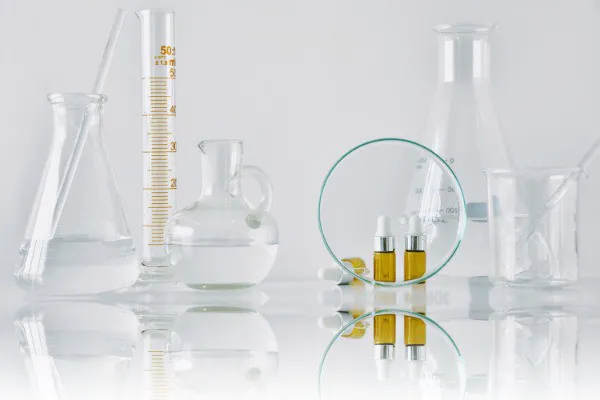
June 2024 topicals round-up
In this monthly column, Gary Conroy, CEO of 5 Squirrels Ltd, will provide updates on the cosmetic topical landscape. He will focus on regulations, markets, new products, clinical breakthroughs, and scientific findings. The goal is to keep you and your patients informed about the latest developments in topicals, ensuring safety and enhancing treatment outcomes. Stay tuned for valuable insights and updates!
The regulatory landscape has been relatively uneventful this quarter, perhaps owing to the significant overhaul of cosmetics regulations in the USA and Canada coming into effect at the end of 2023 and the impact it has had on many US brands’ infrastructure, the UK and EU continue to remain regulatory aligned, in part due to the Northern Ireland protocol and the extension of the CE mark reciprocal agreement. That said, there are some divergencies particularly around animal testing and the use of some ingredients.
SPF seems to be under increasing scrutiny from regulators this year. Two common ingredients are already under investigation for safety concerns in the EU, while the USA, Canada, and Australia implement new regulatory pathways for SPFs to support consumer safety and truthful claims.
Following a lacklustre 2023 for M&A activity in the cosmetics sector, probably due to high inflation, recession rumours, and interest rate hikes, the market picked up significantly in 2024 and is now forecast to be worth $580 billion by 2027, according to McKinsey.
The growth in acquisitions from conglomerates and private equity companies is predicted to accelerate in 2024, and there have already been dozens of large deals so far this year.
InCosmetics, the world’s largest exhibition for innovation and sustainability in skincare ingredients took place in Paris in April. Again, the focus this year was on new, safer SPF, more environmentally friendly ingredients, and ingredients to enhance mood and longevity as consumer demand requires feel-good as well as look products to meet their needs.
REGULATIONS
Animal testing
Defra, the UK Department for Environment, Food and Rural Affairs, has launched a consultation on UK Reach (Registration, Evaluation, Authorisation, and restriction of chemicals) to launch an alternative model to register chemicals in the UK following EU departure, the consultation impacts cosmetics in that, all chemicals previously registered in the EU will need to be re-registered in the UK and around increased protection against unnecessary animal testing. This comes soon after the EU Court of Justice ruled last year to overrule a complete ban on animal testing in cosmetics.
https://consult.defra.gov.uk/reach-policy/atrm-consultation/
https://www.peta.org.uk/blog/reach-sunscreen/
Titanium dioxide (nano) coatings and SPF
The EU SCCS (Scientific Committee on Consumer Safety) has launched a draft opinion on the safety of new titanium dioxide (nano) coatings, which may impact some SPF products in the marketplace.
Considering all the provided information, the SCCS is of the view that there are a number of uncertainties and data gaps that do not allow a conclusion on the safety of titanium dioxide (nano) coated with a combination of w/w 6% aluminium hydroxide, 18 14% sodium myristoyl sarcosinate and 10% dimethicone (Eclipse 70) - either on the basis of a similarity to the TiO2 nanomaterials previously assessed by the SCCS or on the basis of the additional information provided in the current submission.
The provided information has not demonstrated a similarity of the titanium dioxide with the above-mentioned composite coating (Eclipse 70) to other TiO2 nanomaterials assessed in the previous SCCS Opinion (SCCS/1516/13 - Revision of 22 April 2014) in terms of physicochemical characteristics, stability of the coating, and the lack of dermal absorption of the nanoparticles. If these aspects cannot be addressed, additional data on physicochemical, toxicological and exposure aspects specifically relating to the nanomaterial under evaluation (Eclipse 70) will be needed to conclude the safety of its use in cosmetic products.
In light of this opinion, clinic owners may want to assess any SPF they stock and its ingredients from a patient safety perspective.
EU restricts three new chemicals
The EU has restricted three new chemicals often found in cosmetics: cyclotetrasiloxane (D4), cyclopentasiloxane (D5), and cyclohexasiloxane (D6), often referred to as silicones. These ingredients give cosmetics a smooth finish and feel good on the skin. However, they are highly volatile and may be considered CMR compounds (carcinogenic, mutagenic, or toxic for reproduction)
https://eur-lex.europa.eu/legal-content/EN/TXT/PDF/?uri=OJ:L_202401328
Plastic ban in wipes
Defra has notified the World Health Organisation of a draft statutory instrument that will ban the use of plastics in cosmetic wipes in England, including sheet masks. The proposed date of adoption is September 2024, with a full ban from 2026. The ban does not impact the UK’s developed nations, which are responsible for their own legislation.
https://www.ctpa.org.uk/news/draft-regulations-for-wipes-containing-plastic-in-england-7711
Consultation on the UV filter ethylhexyl methoxycinnamate
The SCCS has opened a consultation on the UV filter ethylhexyl methoxycinnamate (EHMC) relating to the consideration of it being a potential endocrine disruptor at concentrations over 10%. A final opinion is due later this year.
Restricting cosmetics for minors
In the USA, lawmakers are considering restricting the use of certain cosmetics to minors. This comes after the controversy over the last year regarding Gen Alpha children’s demand to look and smell great with premium products and the emergence of the “Sephora Kids.” The proposed bill may ban the sale of skincare or cosmetic products that target ageing concerns.
https://beautymatter.com/articles/california-considers-restricting-youth-access-to-retinol
MARKETS
Estee Lauder acquires Deciem
Estee Lauder has completed the acquisition of Deciem (The Ordinary) for $1.7 Billion. The Ordinary was founded by Brandon Truaxe in 2016 with a mission to democratise skincare, Estee Lauder became interested in the brand a year later and by 2019 it was generating $300 million in annual sales.
https://www.elcompanies.com/en/news-and-media/newsroom/press-releases/2024/06-03-2024-114511824
Claims against Amazon
UK retailers have filed a £1bn damages claim against Amazon. The claim has been made by the retailers, including some skincare brand owners, for “illegally misusing their data” and “manipulating the Amazon Buy Box to benefit its own commercial operation and its overall revenues and profit”
Puig valued at $13.9bn
Puig the family-owned cosmetics company estimated to be valued at $13.9bn who recently acquired Dr Barbara Sturn, have posted an IPO on the Spanish Stock Market at €24.50 per share, the largest Spanish listing for 10 years. The company also own Caroline Herrera and Charlotte Tilbury. The funds will be used to acquire new brands to add to their portfolio.
https://www.puig.com/en/newsroom/puig-begins-trading-on-the-spanish-stock-exchanges-1/
Clariant acquiresLucas Meyer
Clariant, the Swiss chemical company, has acquired Lucas Meyer, a Canadian cosmetics ingredients business, for $810M. The move increases Clariant’s exposure to active and functional cosmetics, making it a major player in the supply of raw materials to the topicals industry.
SCIENTIFIC
Fossil fuels
A Danish start-up has raised $4.9m to create the world’s first fermentation platform that could replace fossil fuel material in cosmetics. The new technology could reduce carbon emissions from the extraction and processing of fossil fuels and improve safety due to microplastic production.
Animal testing
L’Oréal has launched new technology which is claimed to produce “bio-printed skin” which the company claims can improve safety and reduce animal testing
Neuroglow
Givaudan has launched Neuroglow, a new active that stimulates melanin in the skin. It also gives the skin a healthy glow, an uplifting mood, and positive emotions. The ingredient comes on the back of a new paradigm in skincare, which not only aims to improve skin appearance but also impacts wellbeing by stimulating feel-good factors like oxytocin and beta-endorphins.
https://www.givaudan.com/fragrance-beauty/active-beauty/products/neuroglow
Glycostop
Beiersdorf has unveiled a new patented ingredient, Glycostop, which inhibits the effects sugar has on the skin through glycation.
The company claims that the ingredient N-acetyl-L-hydroxyproline reduces advanced glycation endpoints by up to 68%, preserving collagen and elastin.
Since 2014, 5 Squirrels have helped skincare professionals to launch their own brand of skincare products and take back control of their business.
They have developed an award-winning portfolio of product formulations containing highly concentrated active ingredients to improve the skin’s overall health and appearance. They offer a one-stop shop that makes the whole process simple so you can get on with what you do best - looking after your clients’ skin.
If you would like more information about launching your own brand skincare with 5 Squirrels, they can be reached at info@5squirrels.com and www.5squirrels.com.
